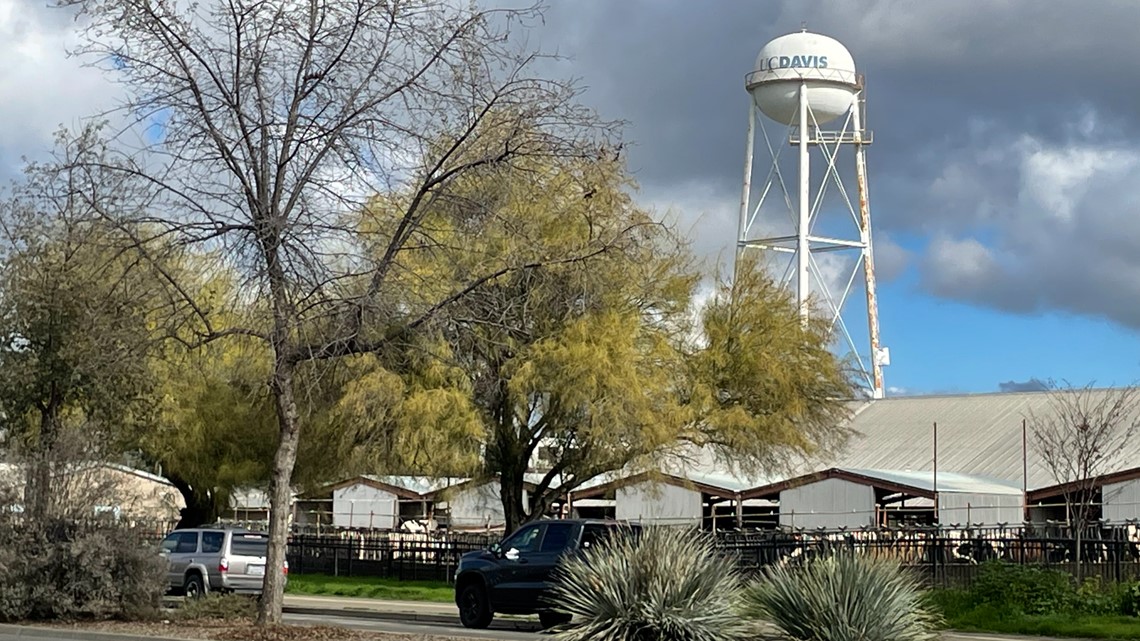
The Trump Administration ends $12 million in UC Davis grant funding, targeting projects considered divisive.
DAVIS, Calif. — UC Davis is out $12 million in grant funding after the money was terminated by the Trump Administration Friday.
In a news release from the U.S. Department of Transportation, the grant was one of seven that were terminated. All together, the grants totaled $54 million.
“The previous administration turned the Department of Transportation into the Department of Woke. I’ve focused the Department on what matters; safety, making travel great again, and building big, beautiful infrastructure projects. The American people have zero interest in millions of their tax dollars funding research on the intersection of gender non-conforming people and infrastructure inequality or whether road improvement projects are racist. It’s time to inject a dose of reality back into our higher education system, and that starts with ending these wasteful and divisive grants,” said U.S. Transportation Secretary Sean P. Duffy.
Officials said the grants were used to advance a “radical DEI and green agenda.”
UC Davis provided the following statement to ABC10 in regard to grant cuts.
“The university has received dozens of notices from federal agencies related to specific grants or projects since the change in the federal administration. The affected grants cover a wide range of areas, including research related to cancer and Alzheimer’s disease, food production and safety, renewable energy, basic science and a great deal more.
“The federal notices vary significantly in their intent and need for action. In each case, the Office of Research is working directly with the principal investigator and campus leadership to determine the appropriate course of action.
“In the case of research terminations, this may include filing an appeal directly with the agency, litigating matters in court and negotiating a financial settlement prior to winding down the research. These processes can take months and prevent us from sharing information publicly until complete.
“UC Davis is a powerhouse for breakthroughs and impact. Our research plays a vital role in building the region’s economy and contributes to our nation’s global leadership in technology and innovation. As we navigate the complex landscape, we remain committed to maintaining and uplifting a robust research enterprise that fully serves our mission of teaching, research and public service.”
Other university grants impacted can be found below:
- City College of New York – Center for Social and Economic Mobility for People and Communities through Transportation
- About $9M for “equitable transportation for the disadvantaged workforce” research
- University of Southern California – Pacific Southwest Region University Transportation Center
- About $9M for research on how “the transportation system creates and perpetuates inequities”
- New York University – Connected Communities for Smart Mobility Toward Accessible and Resilient Transportation for Equitably Reducing Congestion
- $6M for “e-bikes to low-income travelers in transit deserts” research.
- San Jose State University – Mineta Consortium for Emerging, Efficient, and Safe Transportation
- About $6M for research on “intermodal inequities, particularly how improvements to auto travel can benefit higher income, often white drivers, while depressing transit ridership potential and depriving it of revenues necessary to provide comprehensive services to lower income, often BIPOC people and research into using crowdsourcing and collaborative planning to address safety concerns of women and gender non-conforming people using public transportation.”
- University of New Orleans – Center for Transit Oriented Communities
- $6M for “equitable transit-oriented communities [and] how neighborhood stabilization efforts support environmental justice” research.
- Johns Hopkins University – Center for Smart Transportation
- $6M for research on “hyperlocal pollution exposure inequalities in New York City, promoting EV usage for low-income gig workers, long distance ride sharing, gentrification” and making climate change the center of transportation decisions.
WATCH ALSO:
